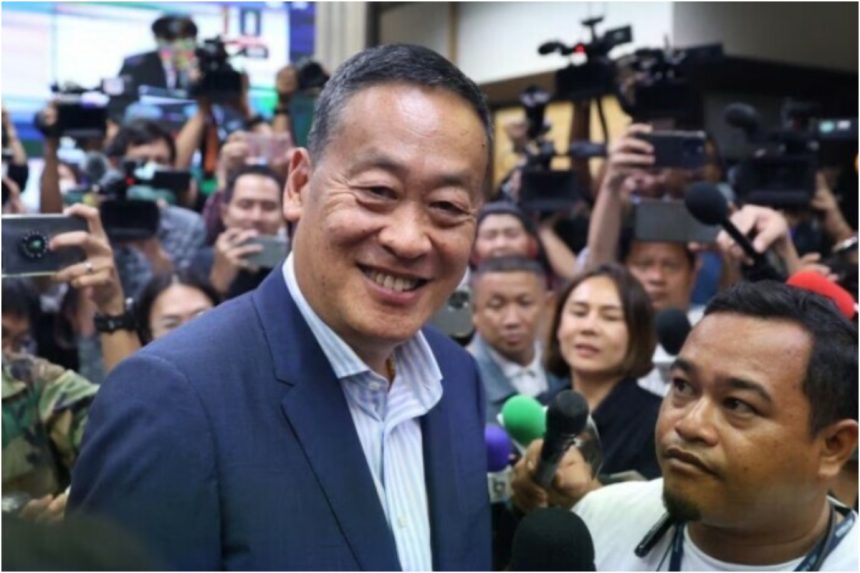- Srettha’s appointment ends political deadlock following May’s general election.
- Thaksin’s return after 15 years results in his immediate arrest on corruption charges.
- Srettha vows to prioritize the nation’s well-being and promises transformative changes.
———————————————————————————————————————
Thailand’s new prime minister, Srettha Thavisin, has assumed office, leading a contentious coalition that includes pro-military factions associated with former coup leaders. The appointment marks the end of prolonged political deadlock following the general election in May. Srettha Thavisin, previously a property tycoon and a member of the Pheu Thai party linked to billionaire former premier Thaksin Shinawatra, was confirmed through a parliamentary vote. This development unfolded just as Thaksin returned to Thailand after 15 years in exile, only to be promptly arrested on longstanding corruption charges.
In an official ceremony at the Pheu Thai headquarters, Srettha received the written mandate from King Maha Vajiralongkorn to form a government, affirming his commitment to prioritize the nation’s welfare. He expressed confidence that his four-year term would usher in a period of transformation and declared his dedication to tireless efforts. Srettha emphasized the government’s mission under Pheu Thai to ensure equal happiness for all citizens and to cultivate optimism for the younger generation.
Prayut Chan-o-cha, the outgoing prime minister and a former military leader who had ousted the previous Pheu Thai government in a coup, congratulated Srettha and extended his best wishes. In the May elections, Prayut faced a significant defeat as the progressive Move Forward Party (MFP) garnered substantial support from the youth and urban populations, capitalizing on their discontent with nearly ten years of military-backed governance.
Despite MFP’s efforts to advocate for reforms in laws related to insulting the royal institution and challenging influential business interests, the establishment was unsettled. This situation led to the denial of MFP’s leader, Pita Limjaroenrat, for the position of prime minister. Consequently, Pheu Thai, the second-place party in the elections, formed a coalition that included Prayut’s party and another aligned with the military figures responsible for toppling Thaksin in 2006 and his sister Yingluck in 2014.





